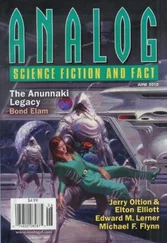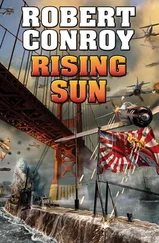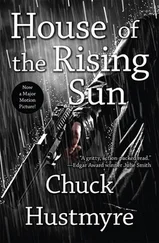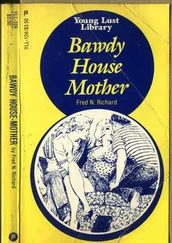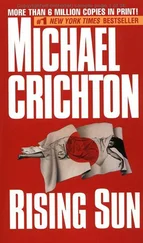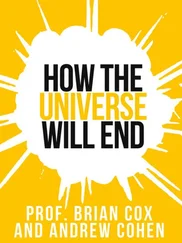What new superstitions would these post-pulse cultures develop? What belief systems would emerge from the melted copper apocalypse?
Would mankind ever regain its old glory?
* * *
After they shared twenty-one peanuts and half a bottle of water, the two of them set out eastward again. They walked for a while and eventually reached a town called Greenville.
“I think we should go around,” Thomas suggested. “There’s no telling what it’s like. We’re strangers. They may not take kindly to us.”
“But maybe they have supplies. Maybe they would help us.”
“And maybe they would shoot me and take you hostage. Are you willing to risk that?”
That Skylar didn’t immediately answer this question annoyed Thomas so badly that for a while he walked well ahead of her. They curved around Greenville on its western and southern edges and saw walkers here and there. At one intersection, a man and his wife were huddled over a beat-up stroller in the parking lot of a Phillips 66. The couple watched with frightened and wary eyes as Skylar and Thomas went by. When she raised a hand to them, neither the wife nor her husband returned the gesture.
At the southern edge of Greenville, they passed an Hispanic man who took one look at the gun Thomas was carrying and offered a wide berth.
“Morning,” Thomas said.
“Hungry,” the man replied.
Not long after, they reached a junction in the road, and Thomas stopped.
“This is Highway 69,” he said. “The lake is straight down that way. I’m surprised more people haven’t come this direction, but maybe that means we’ll have a real chance when we reach the lake.”
“Or maybe the lake is crawling with refugees.”
“Maybe. But we need water. I don’t know how much longer I can go on like this.”
She couldn’t believe Thomas would admit he was suffering.
“Even if we stumble across an empty cabin,” she asked, “what then?”
“Maybe we’ll find a fishing pole. It’s a pretty big lake.”
“Fish?”
She waited for him to stammer through an optimistic lie about how he could catch enough food from the lake to feed them, but instead Thomas looked away and walked on silently.
There was a serenity about this new world she might have embraced if the serenity hadn’t been a lie. They were out of water and food, and from this point forward every waking minute would be wasted trying not to die.
By now Skylar should have been willing to concede that the things she previously believed to be important were in fact worthless. Like expensive clothes and her precise body fat percentage and whether her next film project would be her last. But instead, she pictured a Ralph’s just up the road. She imagined large trays of oranges and apples, potatoes arranged in towering pyramids, and chicken breasts laid out in rows, they didn’t even have to be organic. That was the high-definition world she longed for. Not this low-fi, hardscrabble deathscape left behind by shortsighted men more concerned with today’s profit than tomorrow’s planet.
She didn’t want this world, but she was also afraid to do anything about it.
* * *
Eventually they reached the northern tip of the lake and worked their way south until they found a clear shoreline. After mouthfuls of raw lake water, Thomas was reenergized, and to Skylar’s chagrin his optimistic mood returned.
Against all odds, they managed to find an empty cabin at the end of a long and narrow path that had once been a road. Many of the houses near the lake were occupied, or concentrated in clusters, but this cabin was set well back from the water. It didn’t appear to have been visited for some time.
Nevertheless, the pantry was stocked with dry goods that were old and stale but still edible, like rice and potato flakes and cans of beans and corn and soup. In a storage closet they discovered a couple of fishing poles and a tackle box full of lures. But the most important find, as far as Thomas was concerned, was the .410 shotgun and six boxes of birdshot. This discovery convinced him there was a real chance to survive. But for Skylar these meager resources only served to prolong her misery.
Thomas wanted to talk through her feelings. His unfailing support and optimism caused resentment to swell inside her until there was no room for anything else. She ignored him or hurled obscenities at him. But instead of retaliating, he absorbed these attacks and emerged more resolute than ever.
The first time she felt sick, Skylar’s mood improved. She’d been wondering how safe it was to consume canned vegetables whose expiration dates were three and four years in the past. But Thomas seemed unaffected after eating the same meals, which meant her nausea was probably due to a stomach virus. Or stress.
But the very next morning she was ill again, and that’s when Skylar began to panic.
Until then she had ignored the spotting and cramps, probably because conscious denial was the only way to insulate herself from true madness.
But once the veil had been lifted, the was no denying a very real and terrible possibility: She could be pregnant. She could be carrying Thomas’ child.
By then only twenty-seven days had elapsed since their romantic encounter (assuming her painstaking count was correct), but there was no question when this potential fetus had been conceived.
The possibility of pregnancy left Skylar with an ugly truth: If she let herself die, she might take a fetus with her. And even though she believed in a woman’s right to choose, even though she had campaigned politically to support reproductive rights, the idea of ending a possible new life in this dying world made her cringe. Paradoxically, though she hated this new world, she also felt a reluctant obligation to it.
But Skylar wasn’t happy about the idea of a new life growing inside her, and she took her frustrations out on the man responsible for it.
“We can’t stay here,” she told him one morning a week or so later. To make their food stores last longer, they had agreed on a conservation schedule that left them hungry most of their waking hours. And she was no doubt hungrier than Thomas.
“What’s the problem now?” he asked. “Is the rice too sticky for you? The water too flat-tasting?”
“I think I’m pregnant.”
“That’s funny. You’re funny.”
“It’s not funny. It’s awful. I need more food or else it’s going to die.”
“You can’t be serious. How would you even know without a test?”
“A woman can tell,” Skylar said. “Believe me.”
“That’s—”
All at once his icy stare melted. Thomas examined her as if hoping to find truth in her eyes. Finally, he reached across the table and grabbed her hand.
“Skylar, if you’re really pregnant… I will eat less. I’ll get us more food. We have to take care of the baby.”
“It’s not a baby,” she said. “Not yet. But you’re right, if I don’t miscarry, we’ll have to find a way to provide for it. Like more food and hopefully a doctor.”
“So you think we should walk back to Greenville? Or find another town? I think there’s one a bit farther down the lake.”
“Let’s look for another town.”
That evening, while they ate small, messy chunks of fish alongside instant mashed potatoes, Thomas told her about his mother.
“It sounds like she was pretty upset with your dad,” Skylar pointed
out.
“I’m sure that made her angrier, but even before he cheated, she wasn’t very nice. I wonder if she really wanted to be a mother.”
“Some women don’t. And then they’re forced to defend their feelings, because everyone assumes something is wrong with them.”
“But why have me, then?”
Читать дальше

